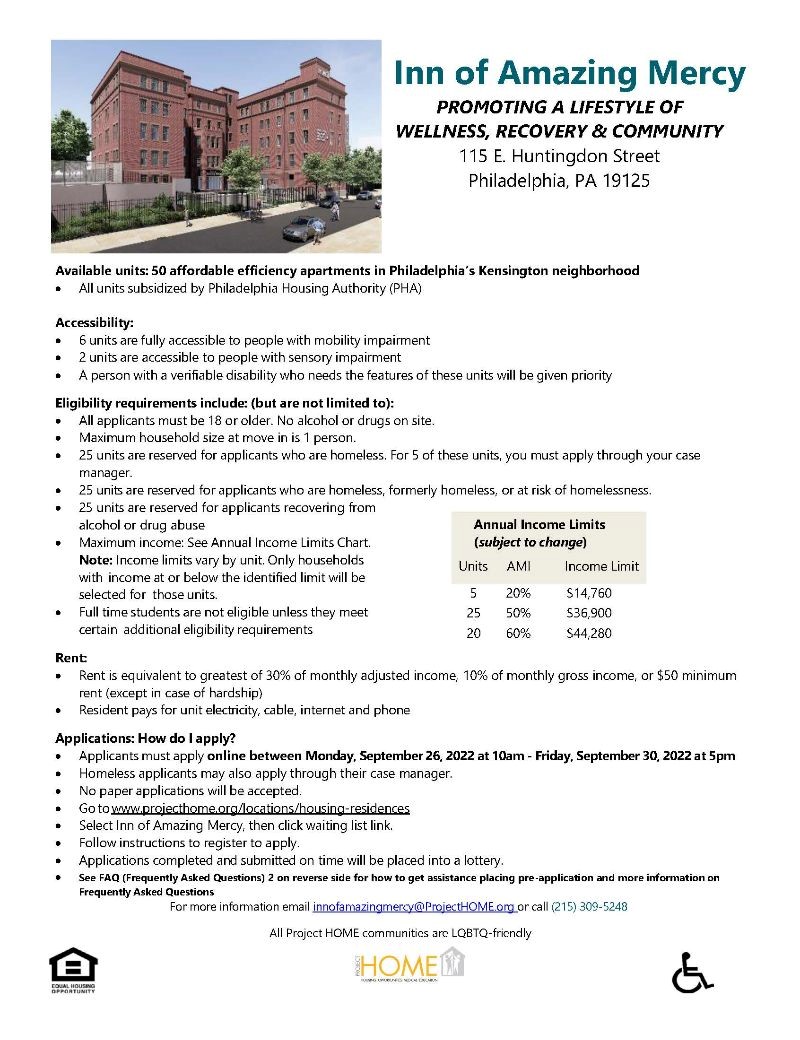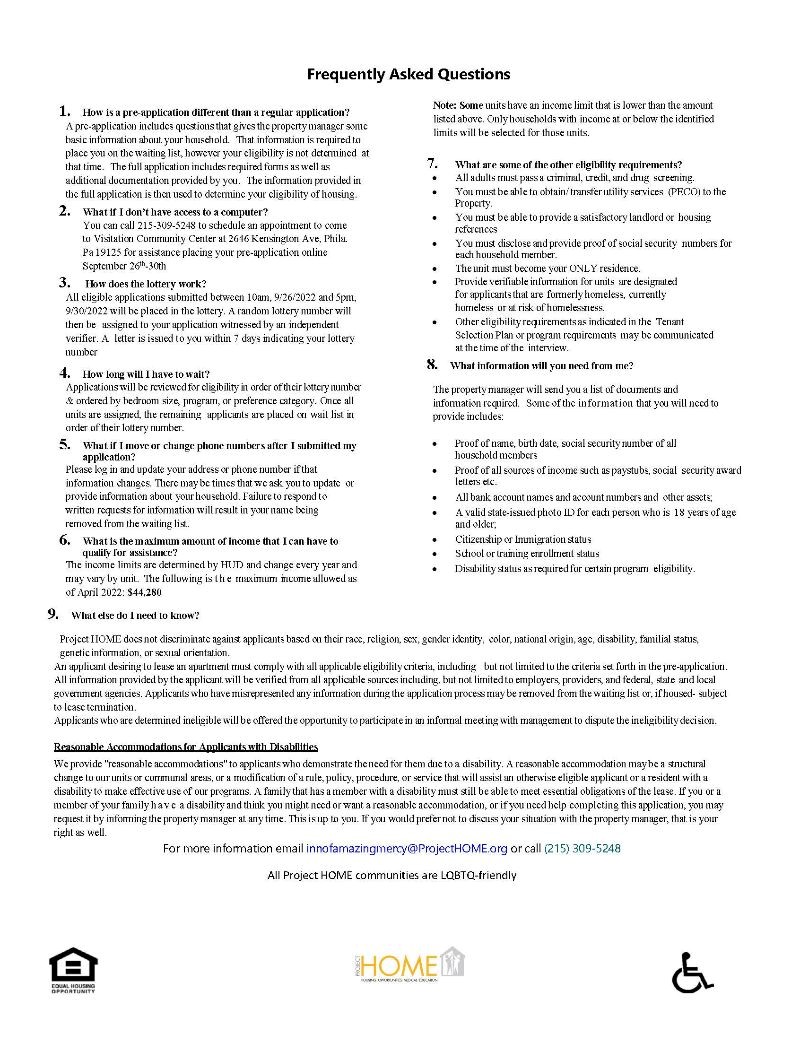
Our nation is in the grips of an opioid crisis that is destroying the lives of too many people, which may include you or your loved ones and friends. People young and old, rich and poor suffer from the vicious cycle of drug addiction and substance abuse. The opioid crisis is not limited by race or ethnic lines, nor is it contained by neighborhood boundaries.
But you are not alone. Don’t let feelings of isolation or embarrassment keep you from seeking help. There are resources and services available for people suffering from addiction to opioids and other drugs, alcohol and self-destructive behaviors.
There are a number of ways to find treatment for those suffering from the disease of addiction.


For Families & Loved Ones
You are not alone. Millions of people suffer from addictions, and like you, their family members and loved ones are adversely affected. Remember you are not to blame. Although you cannot change your loved one’s behavior, you can encourage them to seek help that is readily available to them. Below are helpful resources for you and for your loved one that is battling addiction.
Signs of Addiction
- Changes in physical appearance or demeanor
- Continued use of substances or drinking despite negative consequences
- Symptoms of withdrawal
- Financial worries or irresponsibility
- Lying, dishonesty, and secretive behavior
- Drinking or ingesting drugs alone or in secret
- Continued use of a medication after a prescription is finished
- Drastic or frequent mood swings
- Loss of friends or changes in who one befriends
Talking To Your Loved One About Their Addiction
There is no one right thing to say when talking with a loved one or friend who is suffering from addiction. What’s important is how and why you do so. Approach them with genuine concern and compassion. Be calm, firm and resolved. Addiction is a cunning disease, so be prepared if the person tries to blame you or others, or convince you that they don’t have a problem. Stay centered and focused on his or her well-being, and remember that you are helping out of love. Consider the following suggestions:
- Reassure them that you are bringing this up out of love and concern for them
- Listen well and pause before responding
- Be ready to provide help if it is sought
- Do not get pulled into stories or justifications
- Set limits for yourself
- Don’t promise what you can’t offer
- Know you are not to blame
Private Insurance for Addiction Recovery
Private insurances vary in coverage, but most will pay some or all of the costs of inpatient or detox programs, outpatient therapy, and other medical treatments for addiction recovery. If you have insurance, the place to start is by calling the number on your insurance card for information regarding your benefits for addiction-related services.
PRO-ACT Family Education Program
Explaining addiction, the various pathways to recovery, and how to empower a loved one to seek recovery. Meets every month. 215-345-6644 councilsepa.org/programs/family-education-program
For Friends and Colleagues
Addiction is a disease. People who suffer from an addiction, whether to drugs, alcohol, or other self-destructive behaviors, need professional help and should seek treatment. Talking with your loved one, friend or colleague isn’t easy. But doing nothing can be much worse. So plan ahead. Read the literature. If you can, enlist other friends or family members in the effort to get the person battling an addiction to seek help.
Signs of Addiction
- Changes in physical appearance or demeanor
- Continued use of substances or drinking despite negative consequences
- Symptoms of withdrawal
- Financial worries or irresponsibility
- Lying, dishonesty, and secretive behavior
- Drinking or ingesting drugs alone or in secret
- Continued use of a medication after a prescription is finished
- Drastic or frequent mood swings
- Loss of friends or changes in who one befriends
Talking To Your Friend or Colleague About Their Addiction
Don’t do it alone. Bring other friends and loved ones into the conversation if you can. Talking with a close friend or colleague about their alcoholism or drug problem isn’t easy. The words you use and the approach you take will vary with each situation, depending on your relationship with the person who is struggling, and what stage of addiction or recovery they are in. Here are some tips:
- Be respectful, don’t accuse
- Express sincere concern and love
- Identify a specific behavior that has you concerned
- Let him or her know you are there to help
- Be prepared with resources
- Be aware of blame-shifting. Don’t get pulled into that type of conversation.
For Pastors and Community Leaders
Addiction is a disease. People who suffer from an addiction, whether to drugs, alcohol, or other self-destructive behaviors, need professional help and should seek treatment. Talking with your loved one, friend or colleague isn’t easy. But doing nothing can be much worse. So plan ahead. Read the literature. If you can, enlist other friends or family members in the effort to get the person battling an addiction to seek help.
Signs of Addiction
- Changes in physical appearance or demeanor
- Continued use of substances or drinking despite negative consequences
- Symptoms of withdrawal
- Financial worries or irresponsibility
- Lying, dishonesty, and secretive behavior
- Drinking or ingesting drugs alone or in secret
- Continued use of a medication after a prescription is finished
- Drastic or frequent mood swings
- Loss of friends or changes in who one befriends
Talking to a Parishioner About Their Addiction
Pastors will certainly encounter people struggling with addiction. Parishioners who have substance abuse or drinking problems or who are struggling with other addictions often seek help from their pastor or a parish priest, inside or outside the confessional. And frequently, concerned family members or friends of someone in active addiction or struggling in recovery will reach out to a priest or deacon to seek help for that person and advice or support for themselves.
It is important for the Church’s ministers to keep in mind that addiction is a disease that requires professional assistance and medical treatment. Nonetheless, spirituality, faith, pastoral care, and the sacraments can all play an important part in achieving sobriety and supporting long-term recovery from abuse and addiction.
Some things to consider when talking with a parishioner who is suffering from addiction or struggling to remain sober and in recovery:
- Assure them that God is with them and will never abandon them.
- While they may feel powerless, they can lean on God’s power to heal and save.
- While others can help and support, no one can do this for them. They must choose to seek the help necessary to become sober and well again.
- While they may have caused much pain and hurt for family and friends, the best thing they can do to remedy those hurts is to choose to seek help for themselves first.
- Inform them that there is always hope because help is available to them.
Prayer and Faith Resources
“I will heal my people and will let them enjoy abundant peace and security.” (Jeremiah 33:6)
You are never alone. The Catholic Diocese of Philadelphia is here to provide help and hope for people working through recovery, as well as for their families and loved ones, friends, and colleagues.
Visit www.archphila.org/hope for a list of spiritual resources and services that will help along the path of recovery.
Catholic & Christian Recovery Resources
Find Treatment & Support.
Substance Abuse and Mental Health Services Administration (SAMHSA) Helpline
Are you or someone you know suffering from a prescription drug or heroin problem? Call 1-800-662-HELP (4357) for information about treatment resources. Your call is completely confidential. This hotline, staffed by trained professionals, is available 24 hours a day, seven days a week, and is available in both English and Spanish.
Insurance Coverage
Private insurance will cover addiction recovery programs and detox programs. Not every private insurance policy includes additional recovery or detox programs but many do.
In addition to private insurance, people suffering from substance addictions can qualify for medical assistance (Medicaid or Medicare). Be sure to ask what insurance or medical support is available for people going to recovery programs, sober living communities, or detox programs.
Emergency Resources
If someone has taken drugs and becomes unresponsive, call 911 immediately.
Emergency help for people suffering from an addiction is available. Below, please find county-based emergency programs for people suffering from opioid addiction, substance abuse, or alcoholism.
County Resources
Helpline for the Uninsured
Behavioral Health Special Initiative (BHSI)
Helpline for Medicaid or Medical Assistance
Community Behavioral Health (CBH)
Helpline for the Insured
If you have private insurance, contact your provider at the customer service number listed on the reverse side of your insurance card, and explain to the representative your specific need.
Helpline for the Uninsured
Helpline for Medicaid or Medical Assistance
Office of Behavioral Health
Helpline for the Insured
If you have private insurance, contact your provider at the customer service number listed on the reverse side of your insurance card, and explain to the representative your specific need.
Delaware County Based Programs
Crisis Intervention Programs
Helpline for the Uninsured
Limited resources are available for uninsured residents of Bucks County.
Helpline for Medicaid or Medical Assistance
Call Magellan Health Services and they will give information as to the nearest treatment agency for an assessment.
Helpline for the Insured
If you have private insurance, contact your provider at the customer service number listed on the reverse side of your insurance card, and explain to the representative your specific need.
Prevention, Intervention & Addiction Recovery Solutions
Livengrin Foundation Inc
Bucks County Network of Care
Helpline for the Uninsured
Limited resources are available for uninsured residents of Montgomery County.
Helpline for the Insured
If you have private insurance, contact your provider at the customer service number listed on the reverse side of your insurance card, and explain to the representative your specific need.
Helpline for the Uninsured
Limited resources are available for uninsured residents of Chester County.
Helpline for the Insured
If you have private insurance, contact your provider at the customer service number listed on the reverse side of your insurance card, and explain to the representative your specific need.
Community Care Behavioral Health Member Services
County Department of Drug and Alcohol
Opioid Overdose.
Pennsylvania is in the midst of an opioid overdose epidemic. An opioid overdose is a life-threatening medical emergency and requires immediate medical care. People who take high doses of opioid prescription painkillers or have a history of substance abuse are at risk of an opioid overdose. Medications like Naloxone can reverse the effects of an overdose.
Drug Overdose Deaths in 2023
Signs and Symptoms of an Opioid Overdose
- A history of current narcotic or opioid use or fentanyl patches on skin or needle in the body.
- Unresponsive or unconscious individuals.
- Not breathing or slow/shallow respirations
- Snoring or gurgling sounds (due to partial upper airway obstruction).
- Blue lips and/or nail beds.
- Pinpoint pupils.
- Clammy skin.
Naloxone (NARCAN)
Naloxone is a medication that can reverse the effects of an overdose due to opioid use (prescription pain medication or heroin) and restore breathing within minutes. Family members and friends can obtain a prescription for Naloxone from their family doctor or use the standing order. Naloxone is available at most pharmacies and insurances vary on how they cover Naloxone.
Visit https://www.health.pa.gov/topics/disease/Opioids/Pages/Naloxone.aspx for more information.
Opioid Addiction Recovery and Hope
Opioid addiction is a particularly aggressive form of the disease. People can gradually become addicted to prescription drugs and/or heroin in an ever-deepening spiral that can turn deadly through overdose. This is not simply due to a lack of willpower or moral character. People become addicted to opioids for many different reasons in a variety of ways, and no matter what, each must face the challenging and difficult task of breaking an all too frequently repetitive cycle of addiction, recovery, and relapse. Often, the most critical time when support is needed most is after a person has been in recovery and then relapsed. Relapse is common and should not be interpreted as a lack of commitment to the difficult path of long-term recovery and sobriety.
But difficult does not mean impossible, and with the right help and supportive environment, sobriety and recovery are indeed achievable. Catholic Social Services has compiled a list of resources to provide you with access to information, help, hope and recovery.
